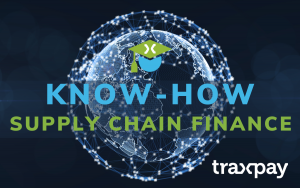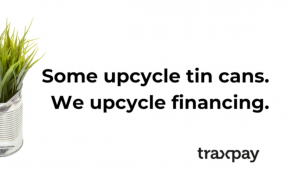When a supplier hears from a buyer or bank that they should participate in an SCF program, the first question that comes to mind is: What are the benefits to me? How will this program affect my business and will I ultimately benefit?
In fact, many of today’s SCF programs offer tremendous benefits to suppliers. From reducing days sales outstanding (DSO), to obtaining much-needed liquidity faster, increasing visibility and reducing demand, to deepening relationships with buyers by accepting appropriate invoice discounts for delivered goods, participation in an SCF program can be a very beneficial tool.
Buyers typically work with their banking or FinTech partners to offer suppliers one of two early payment program options. On the one hand, buyers can use their own cash to finance a Dynamic Discounting program. Alternatively, they choose to leverage financing from third-party financing partners to offer a Reverse Factoring program.
As a platform, Traxpay is a full-service provider that accompanies corporates through the various processes of an SCF program: Based on a detailed spend analysis, a segmentation of the supplier portfolio, the identification of investment needs, the definition and measurement of program targets up to the actual onboarding of suppliers takes place. The focus is on demonstrating the benefits of an SCF program and ensuring proper use.
When banks and FinTechs collaborate
Banks have long offered supply chain financing options, but with FinTechs entering the market, collaboration between banks and FinTech platforms has opened the door to more flexible solutions with a significantly expanded feature set. FinTechs such as Traxpay are partnering with established banks to make SCF programs offered easier to implement and ensure high supplier adoption. Research by Traxpay shows that 76% of companies favor a platform solution or a combination of independent platform and bank. In addition to user-friendliness, the structured and successful onboarding and the easy ERP integration, which does not require any process adjustments, speak in particular for an independent platform solution.
An article by Markus Wohlgeschaffen. Markus Wohlgeschaffen is Head of Product at Traxpay and has more than 35 years of experience in Trade Finance and Supply Chain Finance.




